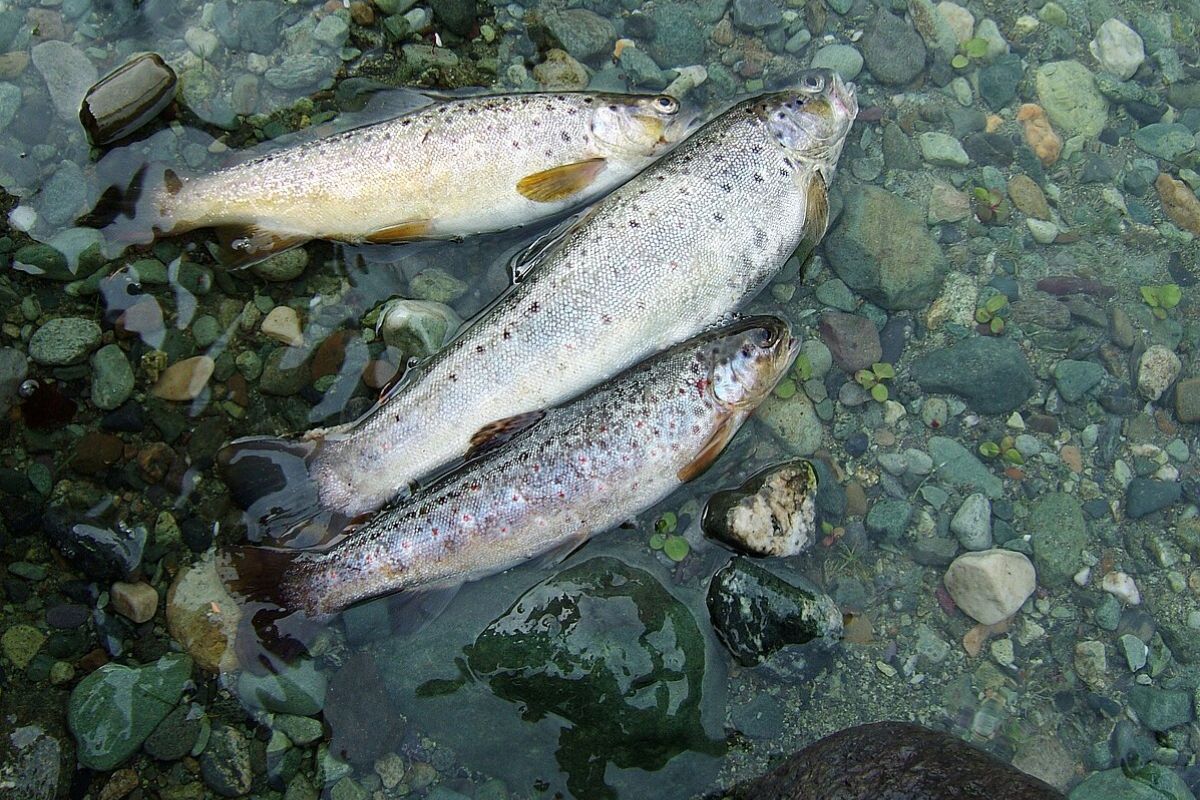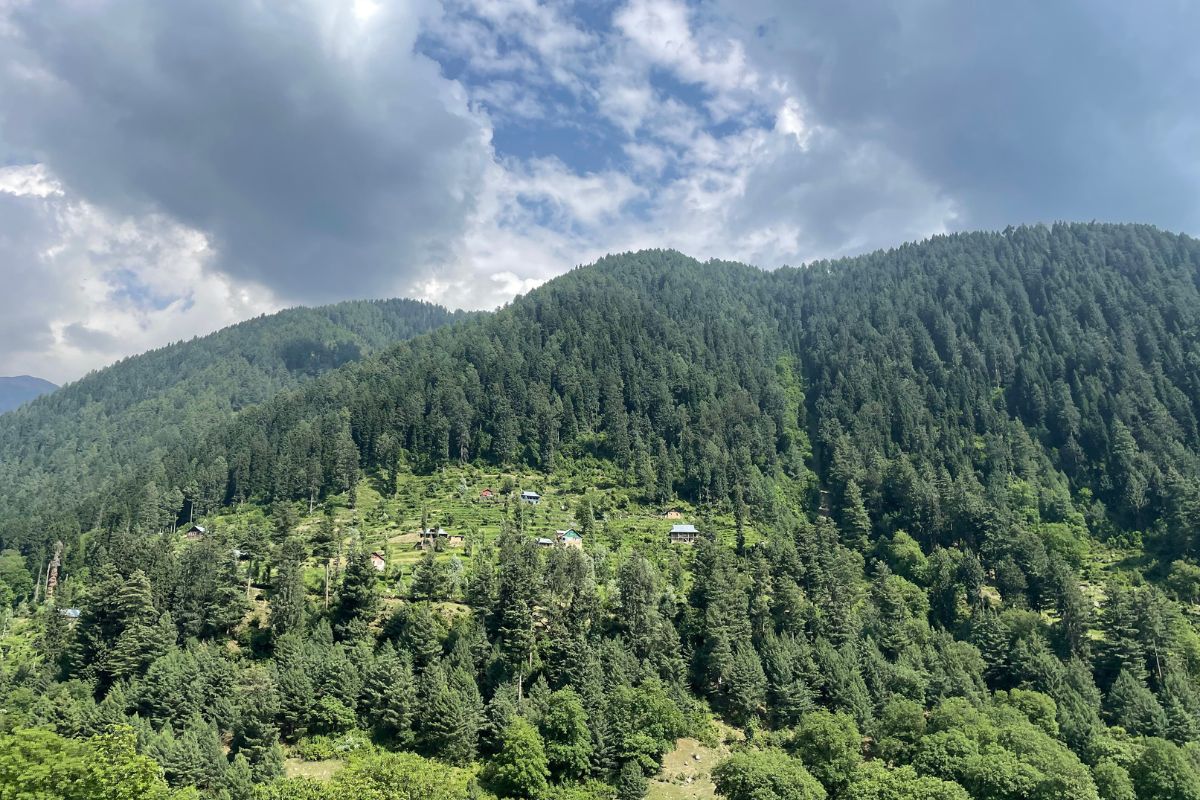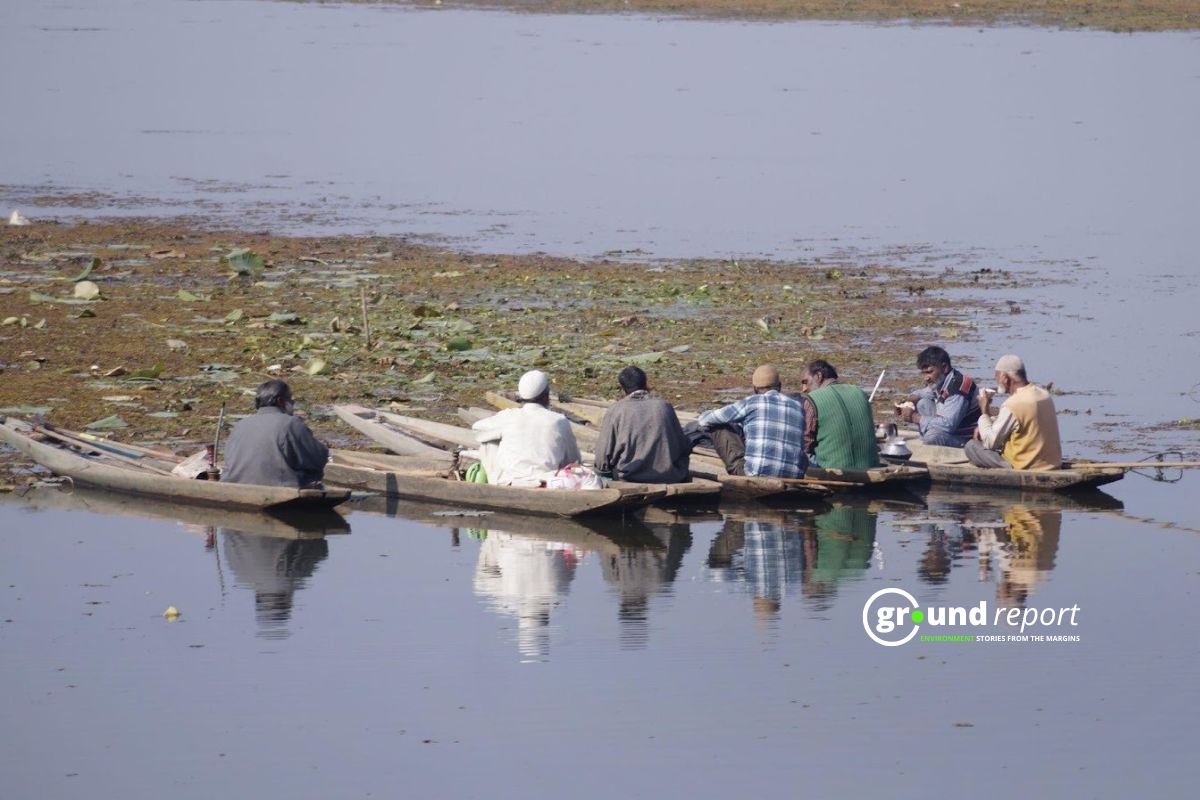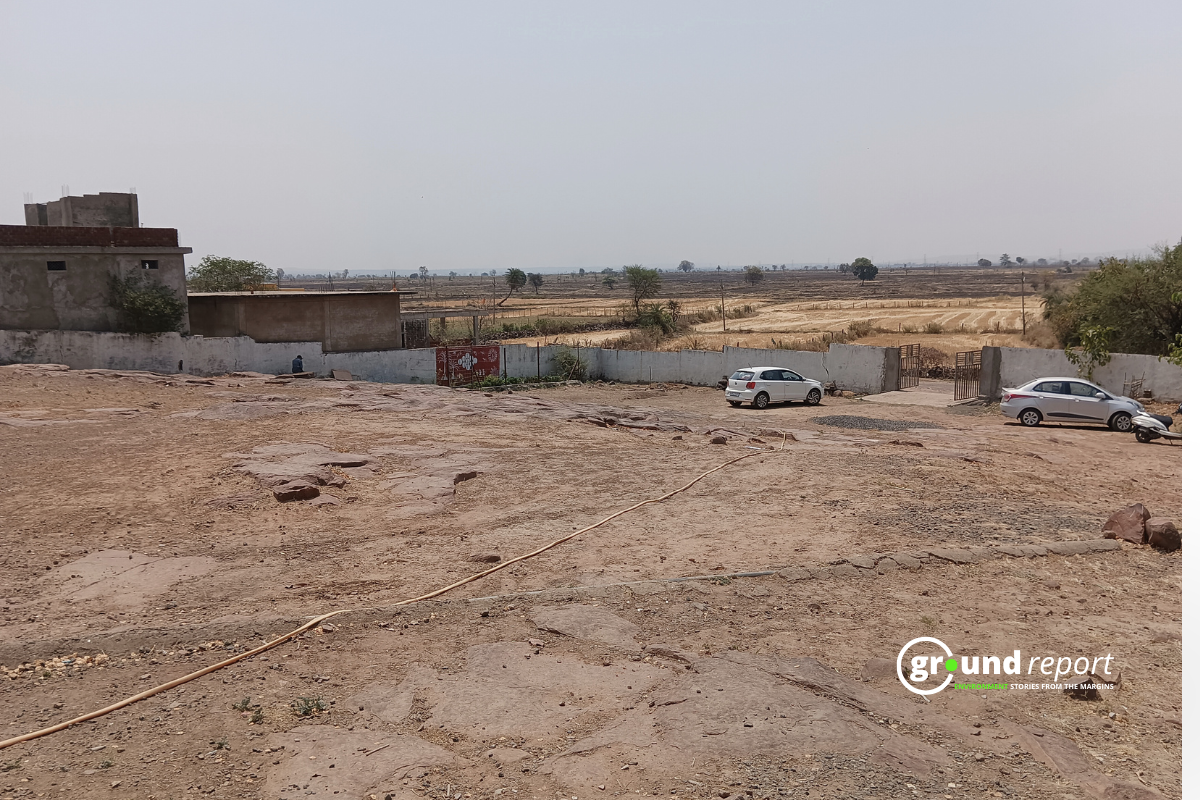The use of bleaching powder for fishing in Kashmir’s rivers and streams threatens ecosystems and human health, sparking outrage among environmentalists, officials, and local communities. The crisis in Kangan, in Ganderbal district where the River Sindh originates, is acute. Local activists are alarmed by frequent illegal fishing with bleaching powder.
“It’s devastating to witness the destruction of our rivers and loss of aquatic life,” says Raja Parvaiz, a local activist. “The rampant use of bleaching powder is illegal and shows a disregard for our ecosystems.”
The illegal use of bleaching powder to catch fish has been reported in Ganderbal, Baramulla, Pulwama, and other parts of Kashmir also, causing mass fish kills and ecosystem disruption.
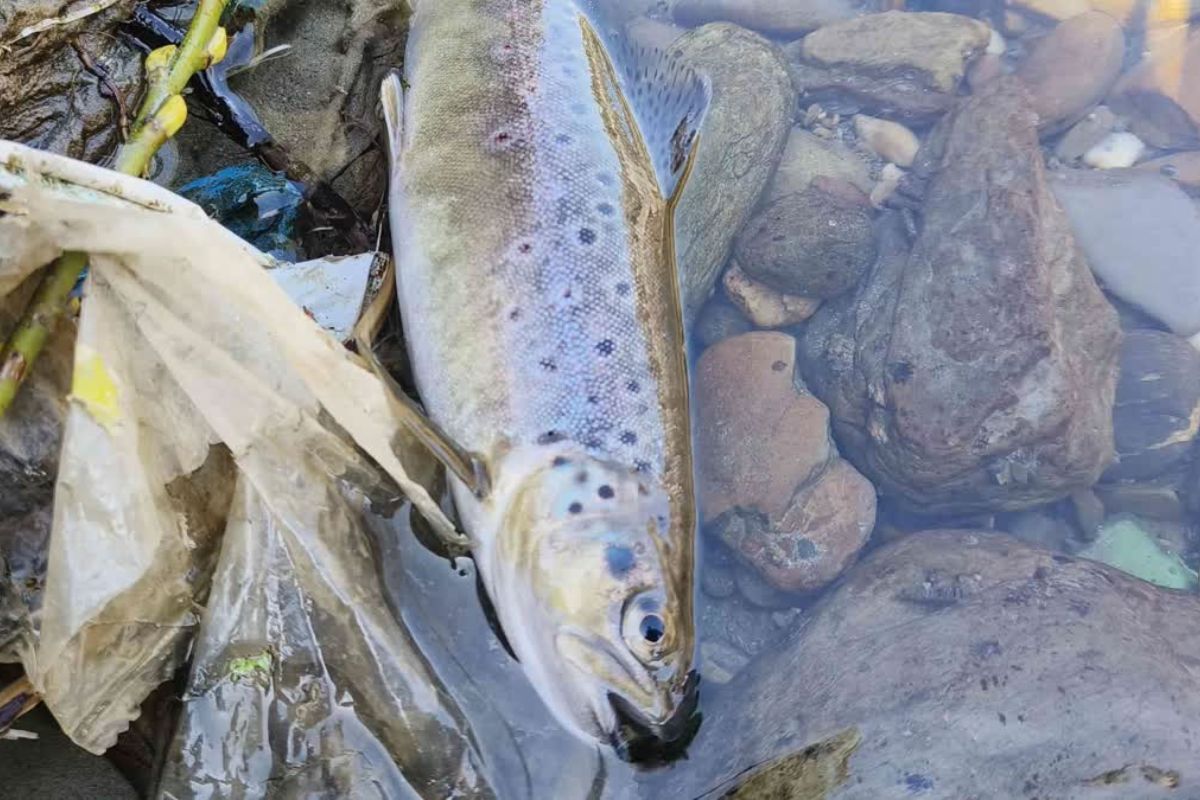
Misuse of bleaching powder common; serious environmental concern
Parvaiz explains, “Bleaching powder is only available with the PHE Jal Shakti department to kill the bacteria in water. The concern is how common people access it. Such incidents happen yearly, and electric shocks for fishing are common.”
Trout fishes were introduced to Kashmir’s mountain streams in the late 18th and early 19th centuries during the reign of Dogra Maharaja Pratap Singh. The British introduced this species to the Valley’s waters because they longed for their angling (Angling is a method of fishing using an “angle” (fish hook) experience in England. A carpet factor owner Angler Frank J. Mitchel introduced trout to Jammu & Kashmir. In 1899, the Duke of Bedford sent 10,000 trout eggs to Jammu & Kashmir, but they perished on the way.
A second shipment from Scotland arrived in 1900. Then, some eggs were released in Dachigam. And, the remaining were reared by Mitchel until they became fingerlings, and later, released into other Valley streams, such as Lidder, Wangath, Gurez, Hamal, Lam, Sindh, Kishenganga, Sukhnag, Doodhganga, Erin, Ferozpur(Tangmarg), Bringi, Aharbal, Hirpora, Dachigam, Kokernag, Naristan, Madhumati and Nowbugh.
Bleaching powder is harmful when used directly in water, as commonly practiced in many parts of Kashmir. Chlorine gas, used in many water supply plants for disinfection, is also considered a dangerous method for treating drinking water.
A report published in the International Journal of Pharma Sciences and Research by Dr. Muddasir Bandy and others (December 2012) highlights contamination of freshwater fish, “Schizothorax Niger” (Algad Snow trout), with chlorpyrifos from the Dal Lake basins. The study indicates that chlorpyrifos, an organophosphate pesticide, was found in “Schizothorax Niger”.
Angling is a major tourist attraction in Kashmir, but the use of bleaching powder threatens the trout population and ecosystem balance. Bleaching powder, containing Chlorine, threatens aquatic ecosystems, harming fish and impacting coral reefs. It leads to reduced growth, reproductive capacity, and increased mortality.
Fisheries Dept. lacks manpower, minimal penalties ineffective
As per the research conducted by a researcher scholar, Rather Tajamul, the fish production from Kashmir dropped from 84.18% in 2000 to 73.21% in 2018. According to the study, this decrease suggests a downturn in the fisheries sector due to insufficient government investment and infrastructure.
Indigenous fish species such as Cyprinidae (Schizothoracids, Crossocheilus diplochilus, Bangana diplostoma), Balitoridae (Triplophysa spp., Schistura punjabensis), Sisoridae (Glyptothorax, Glyptosternon) in Kashmir are at risk, with 8 out of 13 species extinct and the rest dwindling. License holders violate the fisheries code of conduct, by using chemicals like bleaching powder and dynamite to kill fish, despite it being an offence under the J&K Fisheries Act of 1960.
He emphasizes the authorities’ limitations, stating, “The human power (employees) is limited in the Fisheries department of Jammu and Kashmir, which is another reason for the lack of effective monitoring and enforcement.”
The department has around 1800 employees for all J&K districts and projects, many of whom are on the verge of retirement. Apart from limited human power, the penalties under the J&K Fisheries Act of 1960 are minimal. Fishing in prohibited areas carries a penalty of Rs 100 fines or a 2-month jail term. Additionally, using dynamite carries Rs 50 or a 1-month jail term.
Bleaching powder harms rivers, risks human health
Prof. Lateef Ahmad from the Chemistry department at the Government College in Ganderbal asserts, “Consuming fish killed with bleaching powder is harmful to humans, causing health problems with extensive consequences.” He explains that chemicals like potassium permanganate, known as ‘Condy’s crystals or Condy’s powder,’ were used for catching fish but bleach powder in the market is restricted after their effects were witnessed. “Nowadays, they do not use these chemicals.”
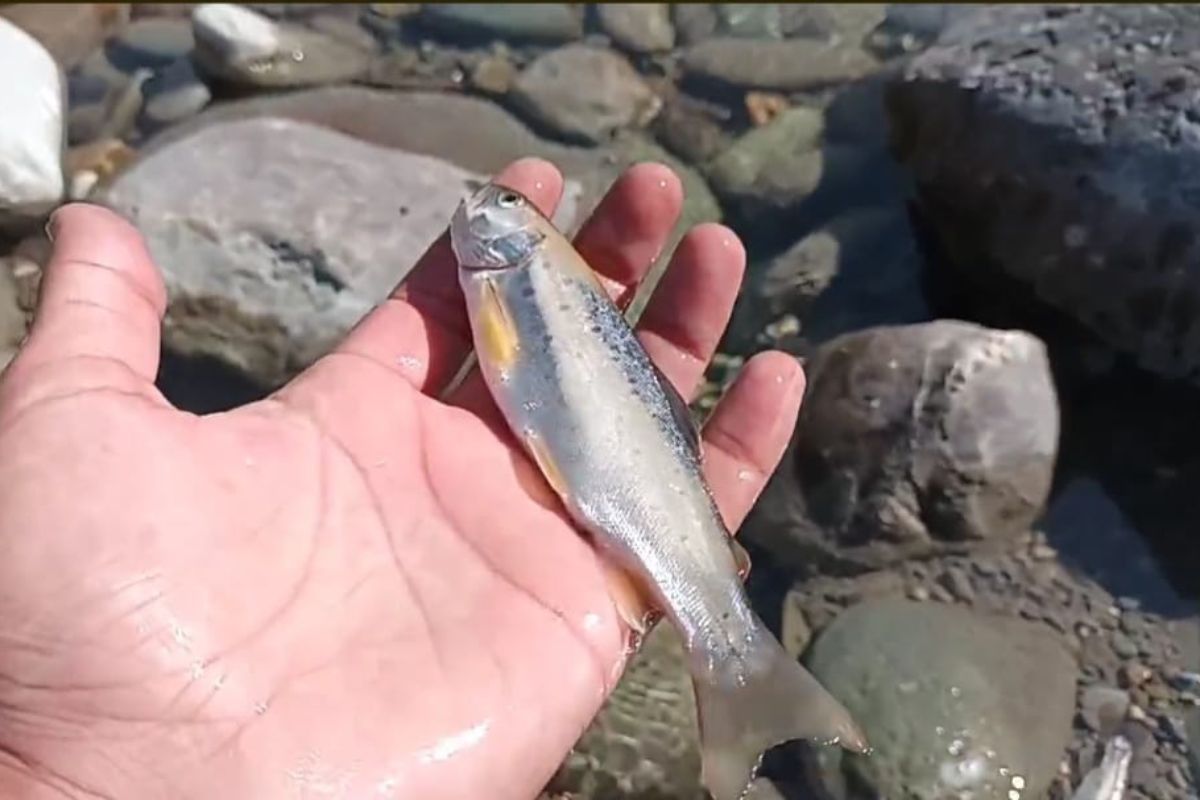
Ahmad warns, “Consuming bleaching powder used to kill fish can cause respiratory, skin, and digestive problems.” He adds, “Swallowing even a small amount of household bleach can irritate the mouth, throat, and gastrointestinal tract, causing nausea, vomiting, and abdominal pain. Concentrated bleach can permanently damage the gastrointestinal tract and may even be fatal”.
An anonymous Fisheries Department inspector told Ground Report, “Bleaching powder is ecologically harmful and morally reprehensible. A ban is needed due to its adverse effects on fish production and human life.” The environmental and human health impact is significant.
Recent Incidents
On October 3, 2023, hundreds of fish died in Nallah Sindh due to toxic bleaching powder discharge. The Fisheries Department investigated by collecting water samples and questioning nearby powerhouse staff. October 15, 2023, the use of bleaching powder for illegal fishing in Nallah Sindh, Ganderbal district, severely affected its aquatic life.
There have been numerous incidents of using bleaching powder to catch fish in Wayil to Sonamarg.
On August 18, 2023, thousands of fish died in Pattan. Locals allege fishermen used bleaching powder in Wular, Sopore. Residents appealed to district authorities for action.
In 2021, reports of illegal fishing in the Vishow Nallah area of Kulgam district were rampant. Miscreants were using bleaching powder and electric current to catch fish.
Stricter regulations, enhanced enforcement, and public awareness campaigns are needed to address this issue. Collaboration between government agencies, environmental organizations, and local communities is crucial to stop illegal practices threatening the well-being of Kashmir’s rivers and people. The widespread use of bleaching powder to catch fish reflects a crisis facing Kashmir’s rivers and aquatic ecosystems.
Keep Reading
Part 1: Cloudburst in Ganderbal’s Padabal village & unfulfilled promises
India braces for intense 2024 monsoon amid recent deadly weather trends
Support us to keep independent environmental journalism alive in India.
Follow Ground Report on X, Instagram and Facebook for environmental and underreported stories from the margins. Give us feedback on our email id greport2018@gmail.com.
Don’t forget to Subscribe to our weekly newsletter, Join our community on WhatsApp, and Follow our YouTube Channel for video stories.
